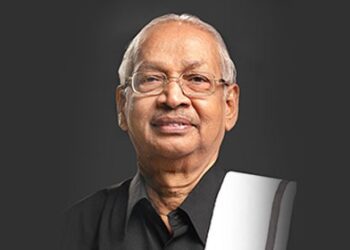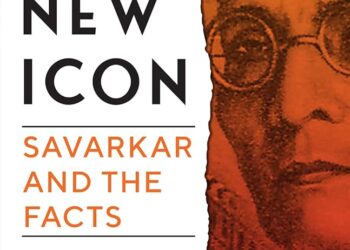Tehsin Pala
Associate Editor, Central Desi
Rutgers students have launched a group to push the university for greater action on caste discrimination.
The Fatima Ambedkar Birsa Periyar Phule Savitri Student and Workers Association was launched in September 2024 with the goals of combating caste discrimination on campus and educating New Jerseyans about casteism. The student group’s founders also demand that the university recognize caste as a protected category in its nondiscrimination policy.
In 2020, Brandeis University became the first U.S. institution to explicitly ban caste discrimination. Since then, over 20 schools—including Columbia, Harvard, and the California State University system—have followed suit, signaling a growing push for anti-caste protections across the country, but Rutgers has not.
“Rutgers stands firmly against discrimination of all types,” a university spokesperson said in an email to Central Desi. “During our last contract negotiation, the university agreed with the Rutgers AAUP-AFT [labor union] to form a joint committee to examine issues of potential caste discrimination impacting students and union members, best practices to respond to caste-based discrimination, and whether to include caste as a protected category within its Policy on Discrimination and Harassment. The university will consider its recommendations at the appropriate time.”
The student group’s formation follows a report by Rutgers’ Task Force on Caste Discrimination, which documented testimonies from caste-oppressed students. Despite these findings, the student group accuses the university of delaying action, leaving vulnerable students without explicit protections in a campus environment with a significant South Asian population.
“We’re doing this work because caste discrimination exists very openly,” said Arpita Biswas, a Rutgers Ph.D. student and member of the group. “The idea that caste is something people leave behind when they immigrate is just ignorance.”
So far, there are no Dalit students in the association. Members believe this could be due to students’ reluctance to disclose their caste identity or the overall lack of such students at the university. Despite the lack of Dalit members, the group continues to advocate for marginalized caste groups, hoping it creates a safe space.
“We need more non-savarna students in American universities, including Rutgers,” said Ira, suggesting that Hindu students tend to be predominantly upper caste. Ira is a member of the student group and a Rutgers alumnus who asked that their last name not be published. “The task force and this association aim to make these spaces more accessible, moving beyond ideas of meritocracy.”
Jeffrey Immanuel, one of the group’s core committee members, said he was motivated to join anti-caste efforts after seeing the diverse crowd at the Rutgers protests against Israeli military action in Palestine.
“There were so many brown people there—American-born Indians,” he said. “I was surprised to see them at progressive events like this but also attending Diwali celebrations or joining the Gujarati Student Association.”
Immanuel sees a contradiction in their selective engagement, explaining that such celebrations and associations often perpetuate caste hierarchies by prioritizing upper-caste traditions and excluding the voices of caste-oppressed communities.
“We need to influence those students who show up for progressive causes but don’t see caste discrimination as part of the problem,” he said.
Student group adds pressure on university
In the task force report released in August, a Dalit student describes facing caste-based questioning from Desi peers in the U.S., as a painful reminder of the prejudices they thought they had left behind. The committee that released the report was co-chaired by Rutgers Professor Audrey Truschke and Corinne Castro the university’s senior director for faculty diversity and institutional transformation.
“When I moved to the United States, I thought I was free here. No more discrimination,” the student said in the report, adding that their lived reality was much different.
In April 2023, a five-day strike by Rutgers workers led to a contract that allowed members to file discrimination claims based on caste, in addition to ancestry, nationality, and other factors. While the language marked progress, the founders of the student group say it falls short because caste remains absent from the university’s official list of protected categories.Without explicit recognition, they say caste-oppressed individuals remain vulnerable in what should be a safe academic environment.
Advocacy groups like Hindus for Human Rights and the Indian American Muslim Council have joined the anti-caste student group in pressuring Rutgers to adopt the task force’s recommendations. Both those organizations have released statements supporting the report and criticizing the university’s inaction.
“Institutions like Rutgers have a responsibility to act proactively to protect vulnerable communities, especially when faced with compelling narratives and evidence such as those offered in the task force’s report,” Hindus for Human Rights said in the statement.
As Rutgers considers the report’s recommendations, the university has also faced pressure from the other side. CasteFiles, a Hindu-American advocacy organization, filed a Title VI complaint against Rutgers University and Truschke, accusing them of perpetuating an “unscientific and unproven narrative” of caste discrimination, based on anecdotal evidence.
A more inclusive space for Desis at Rutgers
The student group began as a casual WhatsApp group called “Anti-Caste Baddies,” created by Desi students who met at campus events. Over time, this informal collective transformed into an organized initiative addressing caste discrimination.
“In the urban planning department, people would discuss equity in housing and accessible transportation, but caste was rarely part of those conversations,” said Akshita Saini, a core committee member and recent Rutgers alumna. “That gap made it clear to me why a group like this was needed.”
The group organized its first major event in April—a teach-in on caste for Ambedkar Jayanti, the birth anniversary of B. R. Ambedkar, the architect of India’s Constitution and a leading anti-caste activist.
“One queer South Asian student said it was the first time they felt included in a South Asian space,” said Immanuel, reflecting on the teach-in’s success.
Since then, the group has hosted two discussions. In one discussion with around 20 to 30 attendees, some in person and some on Zoom, anti-caste researcher Sumeet Samos spoke about the 2024 Indian election results and their implications for caste politics.
In a separate event, Maulikraj Shrimali, founder of the Whistle Blower Theatre Group—an anti-caste initiative that uses theater to address social and political issues in India—led a discussion on the meaning of protest art.
In addition to these events, the student group is hosting monthly panel discussions with anti-caste scholars in collaboration with another group on campus called the Global Anti-Caste Thought Graduate Working Group.
“I feel happy that we now have some structures in place for like-minded people who want to learn more about anti-caste work and organize together,” said Biswas.









